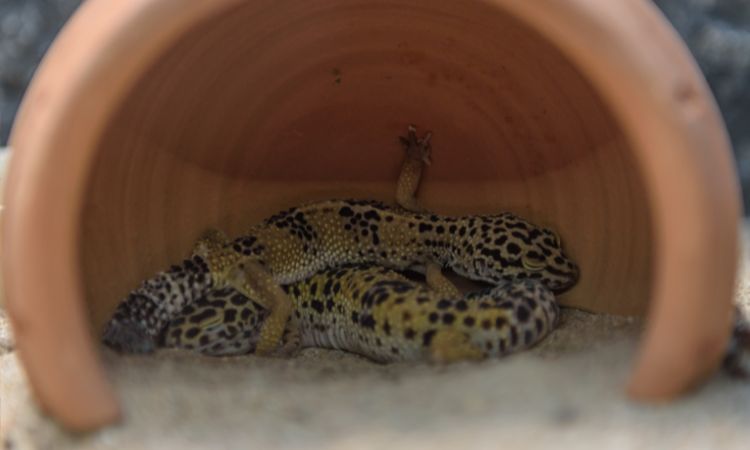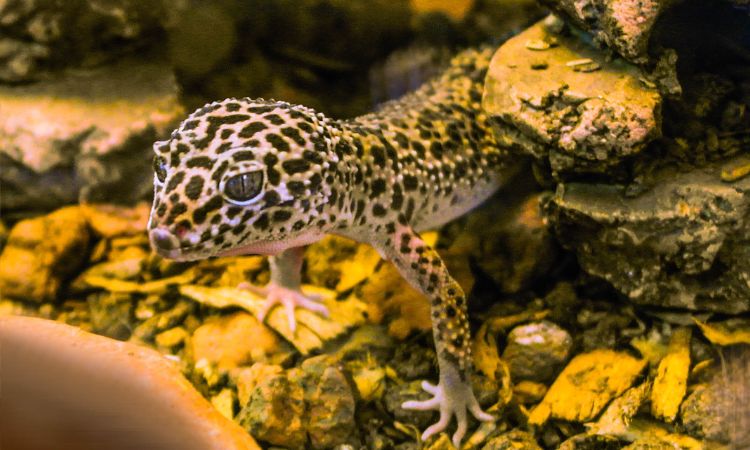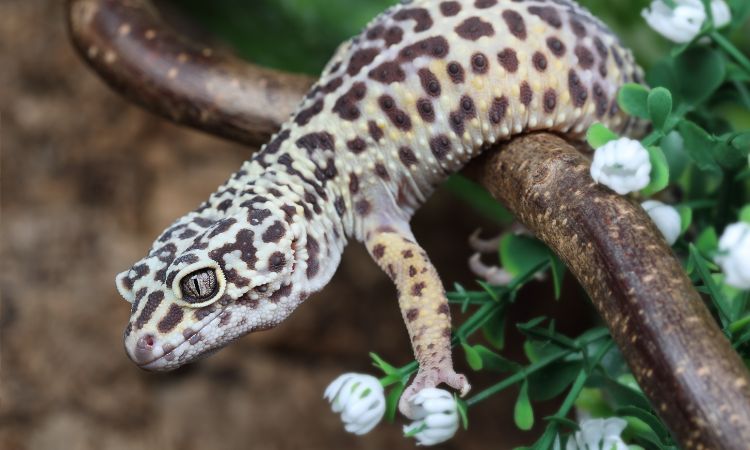Do you ever wonder why your leopard gecko sleeps so much? It’s a common question among new gecko owners, and there are a few reasons why your gecko may be sleeping more than usual. In this blog post, we’ll explore some of the reasons why leopard geckos sleep a lot, and what you can do to help your gecko get the best sleep possible. Keep reading to learn more!
Leopard geckos are nocturnal creatures, so they sleep during the day
Leopard geckos are one of the most popular pet reptiles in the world. While geckos, like many other reptile species, are often characterized as nighttime animals, these geckos are more nocturnal than their cousins.
During the day they sleep and rest mostly undisturbed in dark hiding places, emerging only at dusk to search for food and find mates.
Though mysterious during the day, their sleek and colorful bodies come alive at night – allowing gecko keepers to behold a small part of their fascinating nocturnal behavior.

They need to sleep a lot because they’re constantly growing
Geckos are amazing creatures that need to sleep a lot in order to keep up with their rapid growth. By snuggling into tight crevices in the rocks or burrowing into the ground, geckos can maximize their opportunity for rest.
Resting helps geckos conserve energy that they would otherwise need to expend while searching for food or finding a mate. This extra rest also helps geckos grow and develop quickly, which explains why geckos at full maturity tend to be more lively and vibrant than other reptiles.
Long hours of sleep allow geckos to experience an accelerated growth rate, allowing them to live a hardy life filled with ample food and potential mates!

Sleeping helps them stay hidden from predators
Geckos are known for their ability to stay hidden from predators using camouflage; however, geckos also rely on sleeping as an effective means of staying out of sight.
By sleeping during the day in areas like tree crevices or any other dark spots that provide ample protection, geckos reduce the risk of discovery by potential predators and can go about their lives undisturbed.
Additionally, geckos also have a remarkable level of alertness that helps them wake up quickly when danger arises, allowing them to take off running without much warning. Altogether, geckos are able to use sleep and vigilance in tandem to maximize their odds of survival.
Sleeping a alot helps geckos conserve energy
Geckos are fascinating creatures, and one of the most remarkable things about them is their ability to conserve energy. Even when geckos are very active during the day, they’ll still find opportunities to sleep and rest frequently.
This helps geckos conserve energy when they may not have constant access to food or other resources that could help them restore their energy levels.
In this way, geckos serve as a reminder that finding ways to conserve and manage our sources of energy can be beneficial in many different ways.
If your leopard gecko seems to be sleeping more than usual, it could be a sign of illness and you should take them to the vet
If your gecko has been sleeping excessively, it could be an indication of illness. While geckos typically sleep for 10-12 hours per day, sleeping for longer than that may mean something is amiss. If your gecko’s behavior has changed to reflect more sleep and less activity, you should consider taking them to a vet.
Even if the gecko appears content otherwise, it can be difficult to tell if an underlying health issue exists. Early diagnosis from a qualified veterinarian is usually the key to getting an ill gecko back to feeling good again!

Leopard geckos are nocturnal creatures that need to sleep a lot because they’re constantly growing.
Sleeping helps them to stay hidden from predators and it’s also a way for them to conserve energy. If your leopard gecko seems to be sleeping more than usual, it could be a sign of illness and you should take them to the vet.

Hi – I’m Erika, the lead gecko enthusiast here at Geckopedia! I write articles about pet geckos, including what to feed your leopard gecko and how to help your pet gecko live a long, happy life! I graduated with advanced degrees from UC-Berkeley, the University of Southern California (USC) and Indiana University-Bloomington, where I studied Biology and Animal Science. I use my experience to help others learn about gecko care, and I am an advocate for all topics gecko related!
